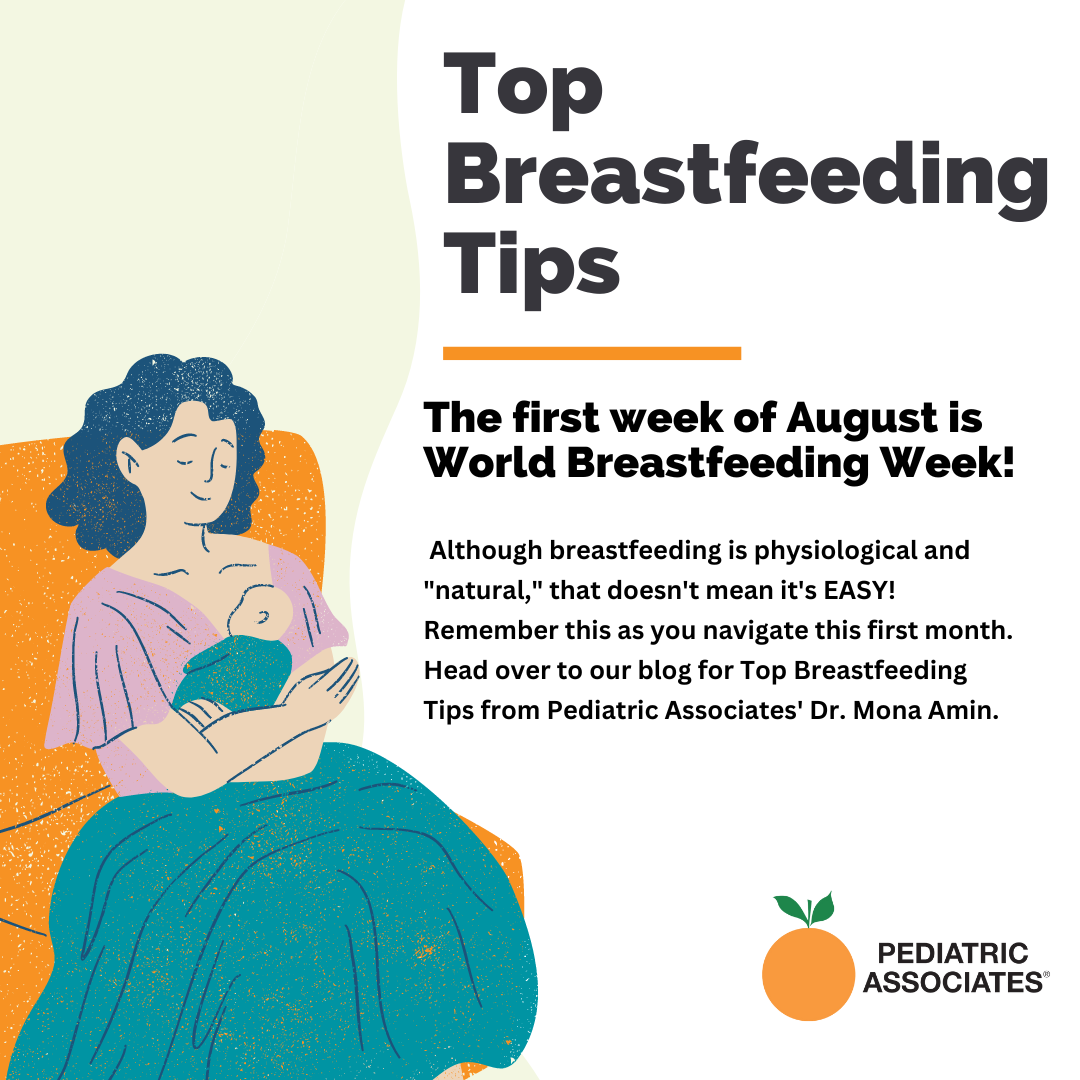
Find Your Support Squad
Sometimes it may not be who you expected or wanted and that's okay. Whether it's a doula, lactation consultant, your mom, or a friend. You need the support to get through breastfeeding, especially in that first month.
Although breastfeeding is physiological and "natural," that doesn't mean it's EASY! Remember this as you navigate this first month.
Be patient with yourself and your baby. You BOTH are learning a new skill, and this means it can take some time.
The first month is the hardest, and you will find your own groove. Reach out to your partner, a friend, or a lactation consultant to help guide you on your journey. If something doesn’t feel right, always go with your gut and get the help you need.
Understand that goals may change. You are an amazing mom doing the best for your baby.
Get the Right Start
Begin skin-to-skin as soon as possible. If you are a NICU parent, remember that skin-to-skin can happen later. Pumping and/or hand expression will be important as well.
The goal for breastfeeding is twofold: finding a position and latch that works for you and baby's anatomy AND adequate production. When milk is removed, we make more milk (a physiological feedback loop) and the best way to do that is for milk to be removed by a baby and/or pump. Don't be discouraged if this doesn't come naturally or easily. People don't often talk about this, but it's normal for it to feel clunky initially.
GET COMFORTABLE! Babies sense the physical stress in our bodies. Find a position that is comfortable for you. You feeling relaxed can help so much. But don't feel pressure to relax. Sometimes the obsession with feeling "relaxed" can make you ironically less relaxed.
Optimize the Latch
The quiet alert state is the best time to BF. This is when baby is calm and/or looking around but showing hunger cues (smacking lips and rooting are examples). If baby is over-hungry (wailing/inconsolable), you can attempt a feeding or calm baby for a more relaxed feed.
Watch for hunger cues. By allowing baby to lead the show and reading their cues rather than reading the clock, you can get on a rhythm that works for baby's needs. Feedings can happen 7-12 times a day, with clustering normal during periods of rapid growth. EVERY BABY IS DIFFERENT!
The best breastfeeding position for baby involves ventral contact (their stomach is turned towards you). Bring your baby to breast vs your breast to your baby. Gently touch your baby's lips with your nipple, and wait for them to open their mouth wide and then bring them in close, so that their lower jaw is against the base of your nipple, and the entire areola (the dark area around the nipple) is in their mouth.
The best latch is the latch that works for you and baby. No need to fix it if it’s working and not painful. If painful or shallow, aim for baby to have a wide-open mouth, chin touching breast, nose free, and both lips flared outward. You should hear audible swallowing.
Go with the Flow
In that first month, let your baby nurse how often and for how long they need. If you are concerned of weight gain, speak to a clinician or lactation consultant. By the first month, you will likely see a rhythm of feedings that occur every 2-4 hours while awake and night time feeds as needed. Remember to pause when your baby stirs in their sleep. Wait 30 seconds to a minute to see if they settle. Feed if showing hunger cues to respect their natural sleep cycle.
Remember, babies can cluster feed and this is normal. Once your baby has met their birth weight, YOU DO NOT NEED TO WAKE THEM UP TO FEED unless directed by a lactation consultant/peds for supply or weight concerns. If you wake up engorged and baby is sleeping, you can choose to hand express/pump for comfort so your supply continues.
Hand express: Get used to hand expressing as this can help prenatally, immediately postpartum, before feeds, and before pumping sessions.
Take Care of You
- Stay hydrated. This doesn't mean chugging water. Drink to thirst and eat well. Don't eliminate food because baby is gassy before speaking to child's clinician. YOU NEED TO EAT.
- Remember that breastfeeding can hurt, but it shouldn't be to a point that it's not enjoyable. Speak to a lactation consultant if it continues to be painful.
- Care for sore nipples, engorgement, and mastitis. Remember that this doesn't mean breastfeeding can't happen, but it's important to take care of your discomfort.
- Check in with your feeding goals. Talk to loved ones if you need help. My goal is for you to address any concerns with latch or production in that first month to have a solid foundation for your breastfeeding journey. Checking in with your goals and getting the help you need allow these goals to happen.
This blog was written by Pediatric Associates Fort Lauderdale South's Dr. Mona Amin.